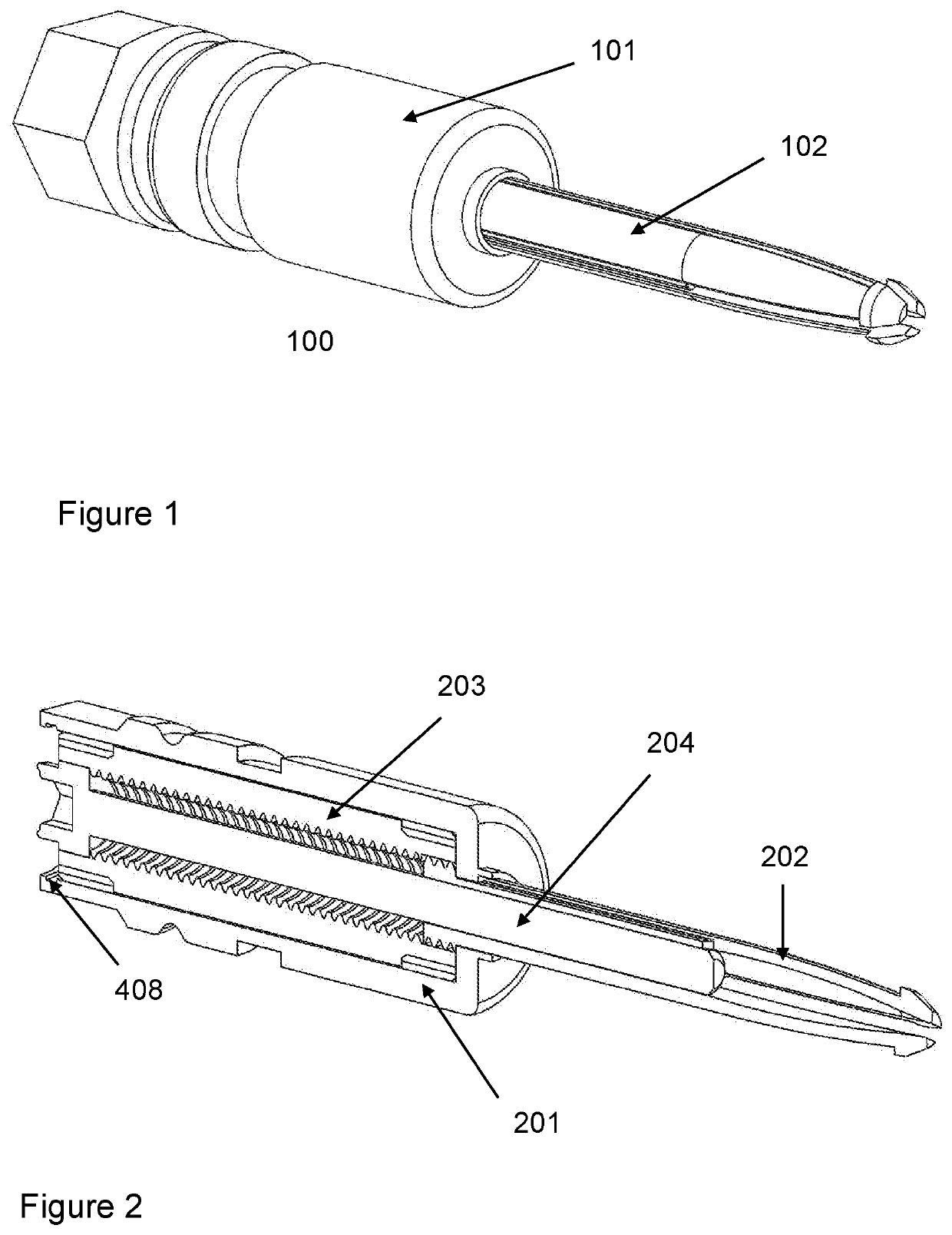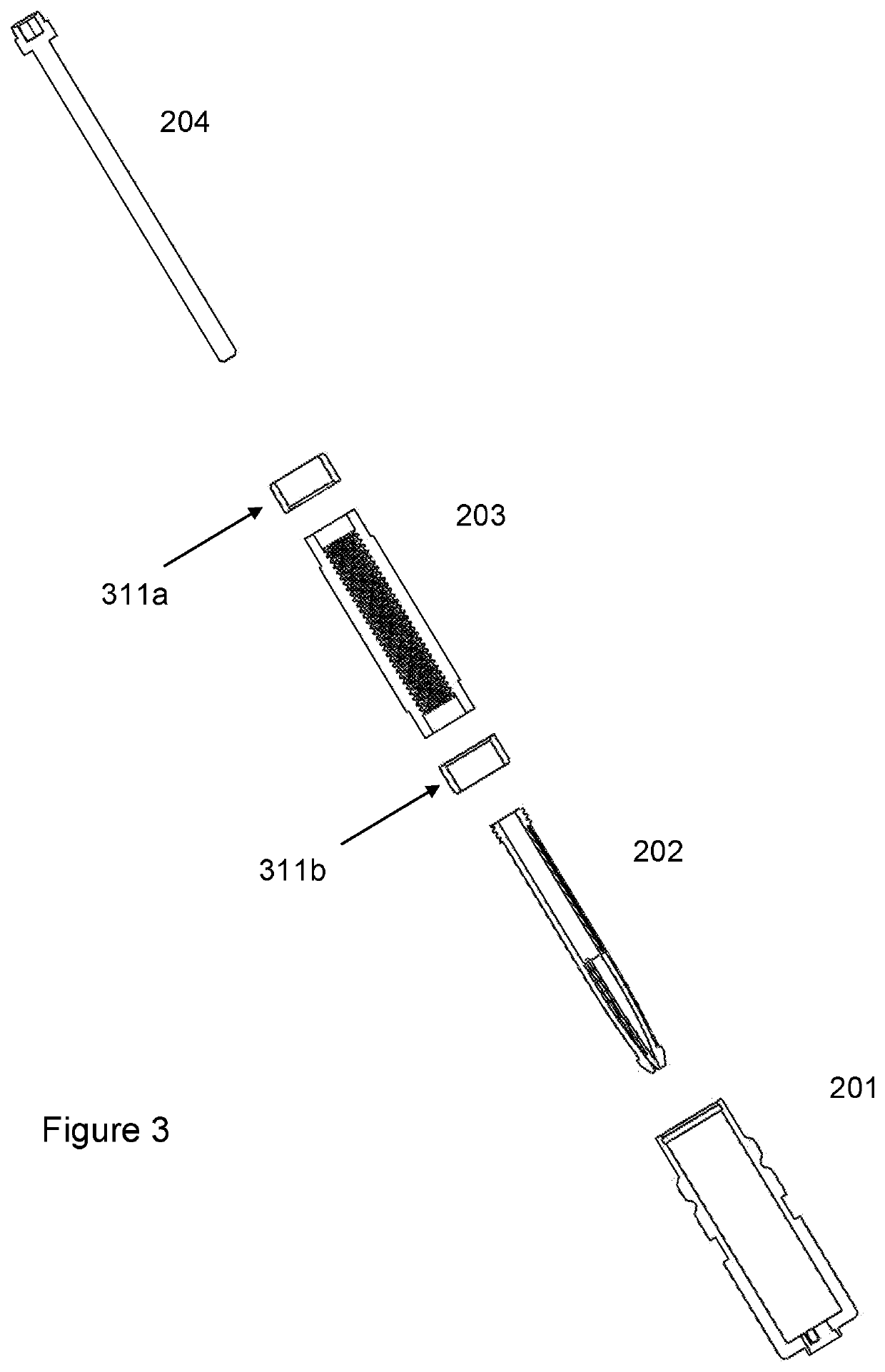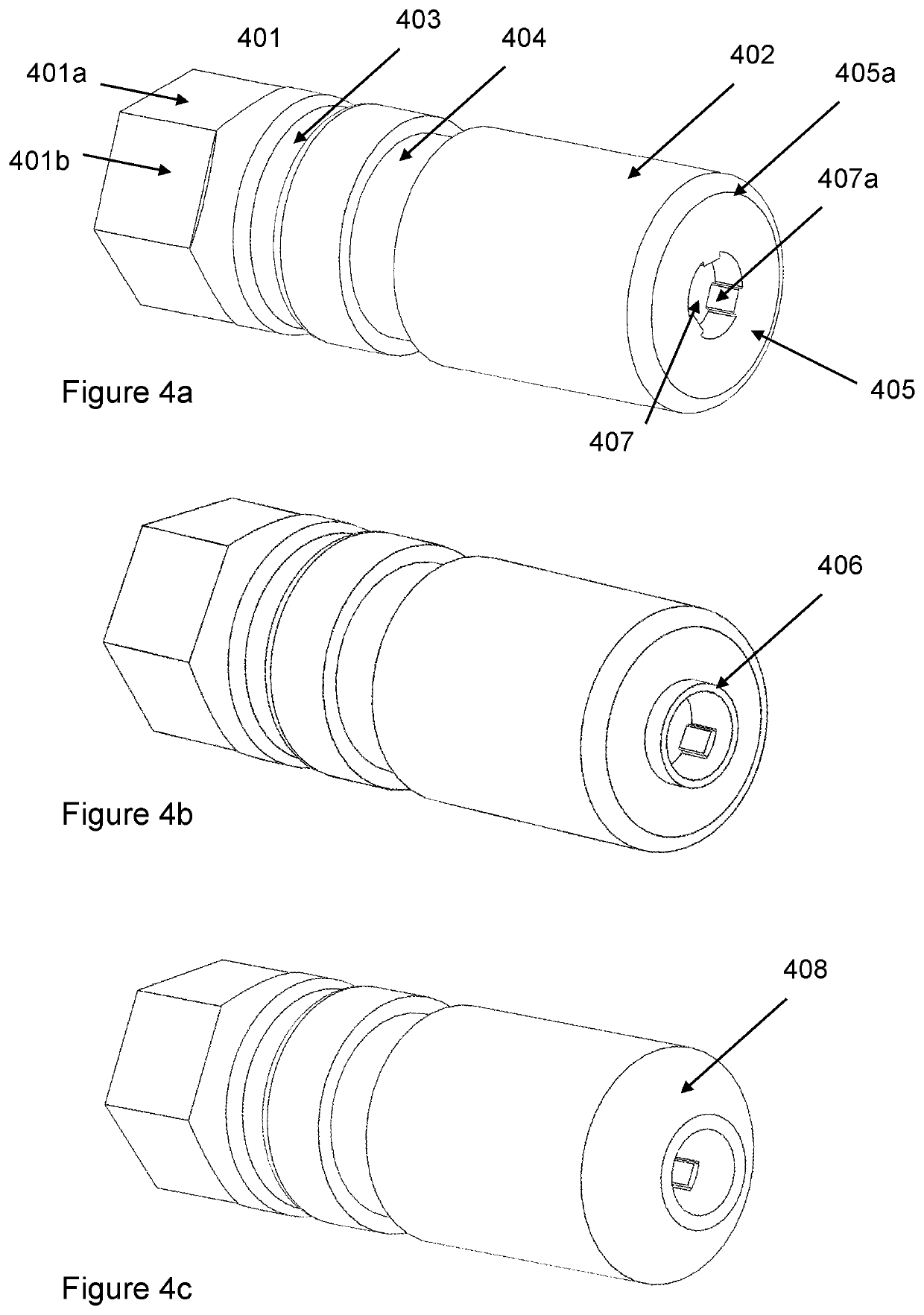High tolerance removable blind fastener
a blind fastener and high tolerance technology, applied in the direction of threaded fasteners, fastening means, dowels, etc., can solve the problems of limited tolerance (i.e. accuracy) of the outside diameter of the fastener, unacceptably low clamping load of the fastener for a narrow aperture,
- Summary
- Abstract
- Description
- Claims
- Application Information
AI Technical Summary
Benefits of technology
Problems solved by technology
Method used
Image
Examples
Embodiment Construction
[0034]The present invention is a fastener 100 as shown in FIG. 1 for temporarily clamping two or more components together. A specific application for the fastener is for clamping parts of an airframe together while permanent fixings are installed; the fastener 100 can be removed and a permanent fixing installed in its place to complete the airframe. Many removable fasteners 100 may be used to temporarily clamp components of the airframe while permanent fixings are installed. The fastener 100 has a wide main body that remains proud of the surface of the parts, and a leg member for inserting into pre-drilled holes in the parts to be clamped. The fastener 100 is actuated by rotation of a part, causing the leg member to pull the parts together, as described in more detail below.
[0035]The fastener 100 has the following main components as shown in FIG. 2; a main body 201, a leg member 202, thread tube (also referred to as a threaded tube) 203 and rod 204.
[0036]The main body 201, shown in ...
PUM
 Login to View More
Login to View More Abstract
Description
Claims
Application Information
 Login to View More
Login to View More - R&D
- Intellectual Property
- Life Sciences
- Materials
- Tech Scout
- Unparalleled Data Quality
- Higher Quality Content
- 60% Fewer Hallucinations
Browse by: Latest US Patents, China's latest patents, Technical Efficacy Thesaurus, Application Domain, Technology Topic, Popular Technical Reports.
© 2025 PatSnap. All rights reserved.Legal|Privacy policy|Modern Slavery Act Transparency Statement|Sitemap|About US| Contact US: help@patsnap.com



